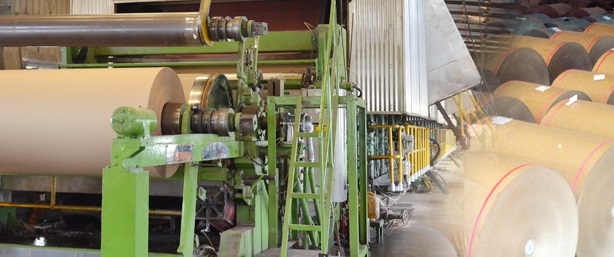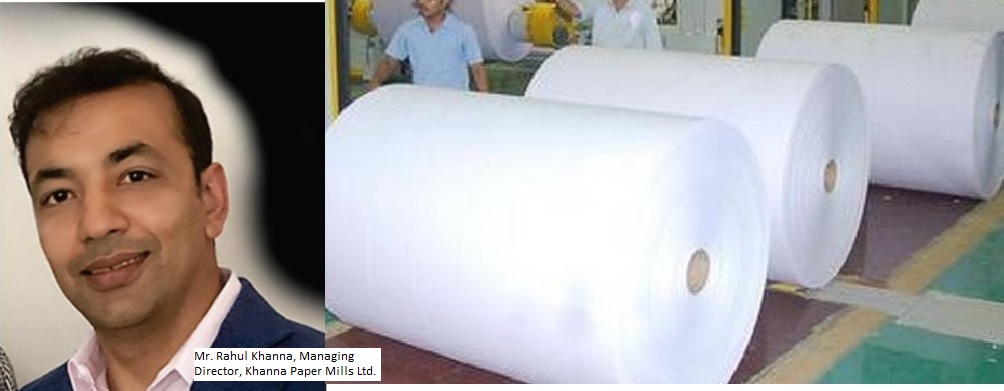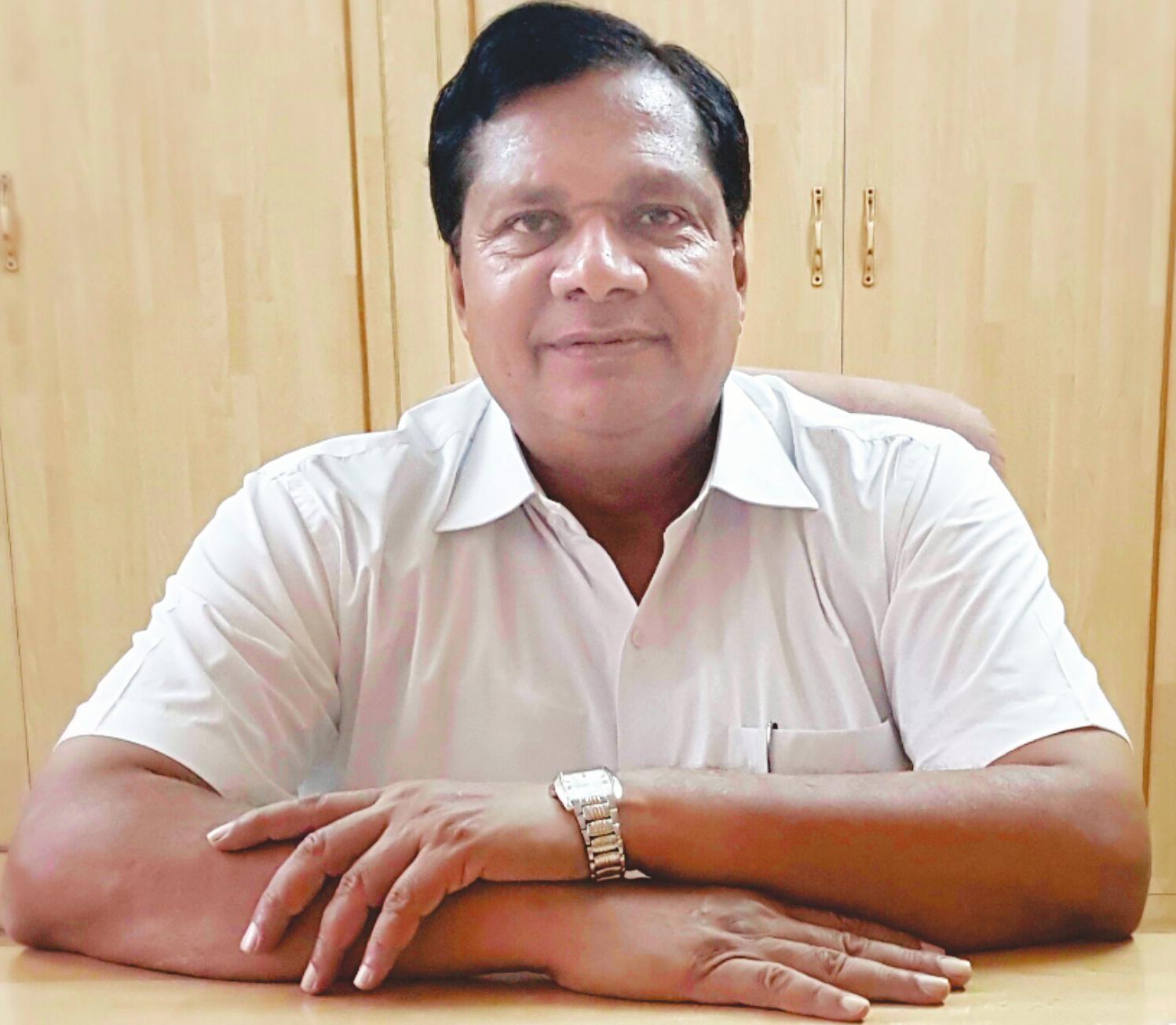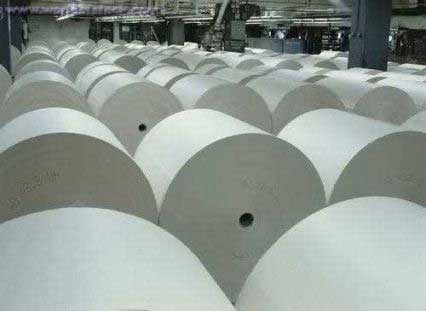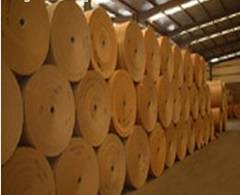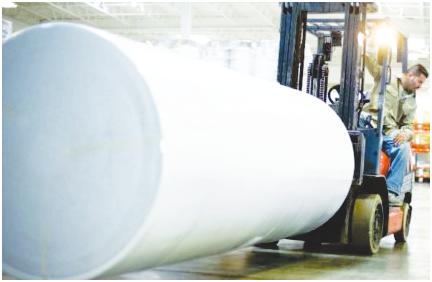From Rs. 7 per kg Paper to Rs. 250 Crore Empire: Chandpur Paper Mill CMD Amit Mittal shares his entrepreneurial journey
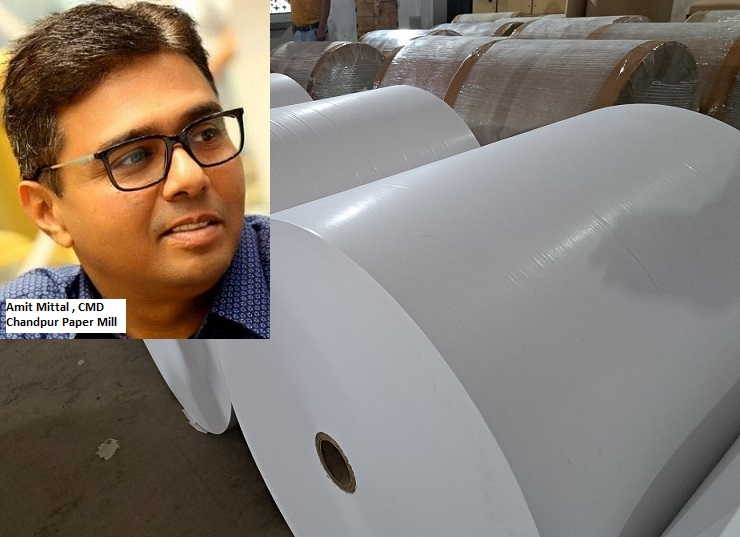
From Rs. 7 per kg Paper to Rs. 250 Crore Empire: Chandpur Paper Mill CMD Amit Mittal shares his entrepreneurial journey
From Cinema Screens to Industrial Machines: The Remarkable Journey of Amit Mittal, CMD of Chandpur Papers Ltd.
The Pulp and Paper Times
Chandpur, Bijnor, Uttar Pradesh — In the bustling lanes of western Uttar Pradesh, where sugar mills once dominated the industrial landscape, one man’s resolve turned personal adversity into an enterprise employing hundreds and powering an industry. Amit Mittal, Chairman and Managing Director of Chandpur Papers Ltd., narrates a story not just of paper manufacturing, but of persistence, grit, and a deep belief in India’s manufacturing potential.
“I never wanted to do a job,” Amit Mittal recalls with clarity. After completing his MBA, unlike many of his peers, he was determined to build something of his own. The family business at that time—cinema halls—was crumbling. “We had five picture halls in and around Chandpur, but by the time I finished my studies, that industry was on the verge of collapse. The big question was: what next?”
The answer came in the form of paper—more specifically, waste paper-based recycling mills, an industry booming in western UP thanks to the abundance of agro-waste from sugar mills. Inspired by the opportunity, and propelled by necessity, Amit, along with his extended joint family, decided to invest in a paper mill. In 1996, they began laying the foundation of what would later become Chandpur Papers Ltd.
But the beginnings were anything but smooth. “We started with a project cost of ₹5 crore—₹3.5 crore was a loan, and ₹1.5 crore was family capital. It was a huge risk. And to make things tougher, our loan was at an interest rate of 27%. Today, even 8–9% feels heavy. Back then, it was like taking money from a moneylender.”
Despite the odds, production finally began on 26th January 1998—a date etched into Amit’s memory. “It was Republic Day. For the country, it was a day of celebration. For us, it was a moment of birth.”
But soon after, the market collapsed. Prices dropped. Debts mounted. “We were stuck in a swamp of debt. Even if we sold all our family assets, we couldn’t repay it. There was no going back.” But giving up was never an option. “With family support, we made a fresh start. We shifted from brown paper to MG (Machine Glazed) white paper, which helped us reposition ourselves in the packaging segment.”
By 2000–2001, things began to stabilize. More family members joined, and the business slowly expanded. But as happens with large families, unity began to splinter. “In 2014, we amicably decided to divide our business interests. I was entrusted with the entire responsibility of the paper mill.”
The next challenge was bigger. “I found myself once again back in 1998, but with a larger debt, bigger liabilities, and fewer people to share the load.” Yet he soldiered on, upgrading technology, repaying debts, and scaling the business.
By 2018, filled with new confidence, Amit embarked on a second paper mill project. But then came COVID-19. The pandemic delayed everything. “There were personal losses, health issues, and financial stress. But we endured.” The second plant finally went operational in late 2021 and stabilized in 2022.
The success wasn’t in the absence of problems, but in the resilience to overcome them.
Today, Chandpur Papers Ltd. produces over 110 tons of paper per day, up from 25 tons/day in 1998. From selling paper at ₹7 per kg, the company now manufactures products valued at up to ₹100 per kg. Its annual turnover has soared from ₹7–8 crore to over ₹250 crore, and it shows no signs of slowing down.
In 2023, rather than expand with a new machine, Amit decided to upgrade both existing units, collaborating with European and Chinese technology partners. “To earn money, you need money. And to repay money, you need more money. Every entrepreneur goes through this cycle,” he reflects.
But the journey, he emphasizes, isn’t just financial. It’s deeply philosophical.
“Resources are never enough at the beginning. They are created when you decide to act. I tell young entrepreneurs, don’t wait for perfect conditions. If your intent is clear, the path will unfold. Like in the film RRR, there’s a dialogue: ‘Your weapons will find you once your war is defined.’ That’s exactly what life is like.”
Amit warns against the startup bubble mindset of valuation-first and exit plans. “Entrepreneurship isn’t about glamour. It’s about nation-building. Our economy needs job creators, not job seekers. Until we strengthen core manufacturing, IT services have no one to serve.”
He’s passionate about encouraging the youth to embrace hard-core manufacturing and to dream beyond desk jobs. “We can’t just chase white-collar work. If India wants to stand alongside China, Japan, or Vietnam, we must build from the ground up.”
Amit ends his story with a message to India’s aspiring entrepreneurs:
“Stand where you want to be. Everything else will align in time. The universe does conspire—but only when you start walking your path.”
And in Chandpur, Bijnor—amidst the scent of pulp and the hum of machines—stands a man who turned paper into purpose, proving that India's future lies not only in code or services, but also in sweat, steel, and recycled dreams.
Web Title: From Rs. 7 per kg Paper to Rs. 250 Crore Empire: Chandpur Paper Mill CMD Amit Mittal Shares His Entrepreneurial Journey




 Join WhatsApp Group
Join WhatsApp Group Join Telegram Channel
Join Telegram Channel Join YouTube Channel
Join YouTube Channel Join Job Channel (View | Submit Jobs)
Join Job Channel (View | Submit Jobs) Join Buy Sell Channel (Free to Submit)
Join Buy Sell Channel (Free to Submit) Paper News Headlines Channel (Free to read)
Paper News Headlines Channel (Free to read)




